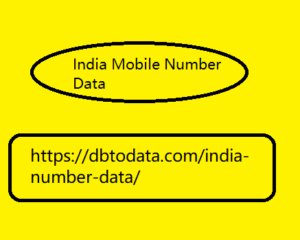Post by account_disabled on Mar 11, 2024 3:45:27 GMT
The pandemic has forced even the most rebellious to work from home by equipping themselves with video conferencing software . The experience is still very basic and the interaction limited: we see the two-dimensional faces of our colleagues, we listen to their voices, we share presentations, but the feeling is that something is missing. And since participants often prefer not to turn on the webcam, they end up using this possibility as a simple telephone conversation. spatial.io office One day all this will change. There are already companies that are working on the idea of the office of the future, through augmented reality and virtual reality technologies . The aim is to simulate, in a space created by the software, in-person meetings in a more realistic way than what now happens with video conferences, without sacrificing productivity.
Naturally this would have an immediate benefit on space and travel costs. This is India Mobile Number Data precisely the goal of Spatial , a company financed, among others, by Samsung, Baidu, LG, Mike Krieger (co-founder of Instagram) and Mark Pincus (co-founder of Zynga). Spatial is building a proprietary AR/VR platform for remote collaboration among knowledge workers, particularly those who design in 3D. At Mattel, designers meet virtually to imagine and build new products. Subsequently, in another virtual session, the China team shows them the rendering of the finished product to compare the design with the final result and make consequent decisions. Spatial's basic service is available free of charge for meetings of up to 40 minutes (limit eliminated during this lockdown period).

Upon registration you are asked to create your own avatar. Spatial's technology is impressive, you just need to be framed by the webcam or upload a photo and your two-dimensional face is transformed into a three-dimensional avatar. At this point you will have to create the virtual room to which you can invite your colleagues. You can participate in the meeting even without a headset, but the best experience requires dedicated hardware, which can be from different manufacturers: Microsoft HoloLens, Magic Leap or Oculus Quest. In this way it will be possible to animate your avatar, write or draw, interact with those present and 3D models. Facebook and the office of the future The use of augmented and virtual reality to reinvent the way of working is also one of the objectives of Facebook, which acquired Oculus not only for its potential in the entertainment field, but also for its potential in the professional field.
Naturally this would have an immediate benefit on space and travel costs. This is India Mobile Number Data precisely the goal of Spatial , a company financed, among others, by Samsung, Baidu, LG, Mike Krieger (co-founder of Instagram) and Mark Pincus (co-founder of Zynga). Spatial is building a proprietary AR/VR platform for remote collaboration among knowledge workers, particularly those who design in 3D. At Mattel, designers meet virtually to imagine and build new products. Subsequently, in another virtual session, the China team shows them the rendering of the finished product to compare the design with the final result and make consequent decisions. Spatial's basic service is available free of charge for meetings of up to 40 minutes (limit eliminated during this lockdown period).

Upon registration you are asked to create your own avatar. Spatial's technology is impressive, you just need to be framed by the webcam or upload a photo and your two-dimensional face is transformed into a three-dimensional avatar. At this point you will have to create the virtual room to which you can invite your colleagues. You can participate in the meeting even without a headset, but the best experience requires dedicated hardware, which can be from different manufacturers: Microsoft HoloLens, Magic Leap or Oculus Quest. In this way it will be possible to animate your avatar, write or draw, interact with those present and 3D models. Facebook and the office of the future The use of augmented and virtual reality to reinvent the way of working is also one of the objectives of Facebook, which acquired Oculus not only for its potential in the entertainment field, but also for its potential in the professional field.
